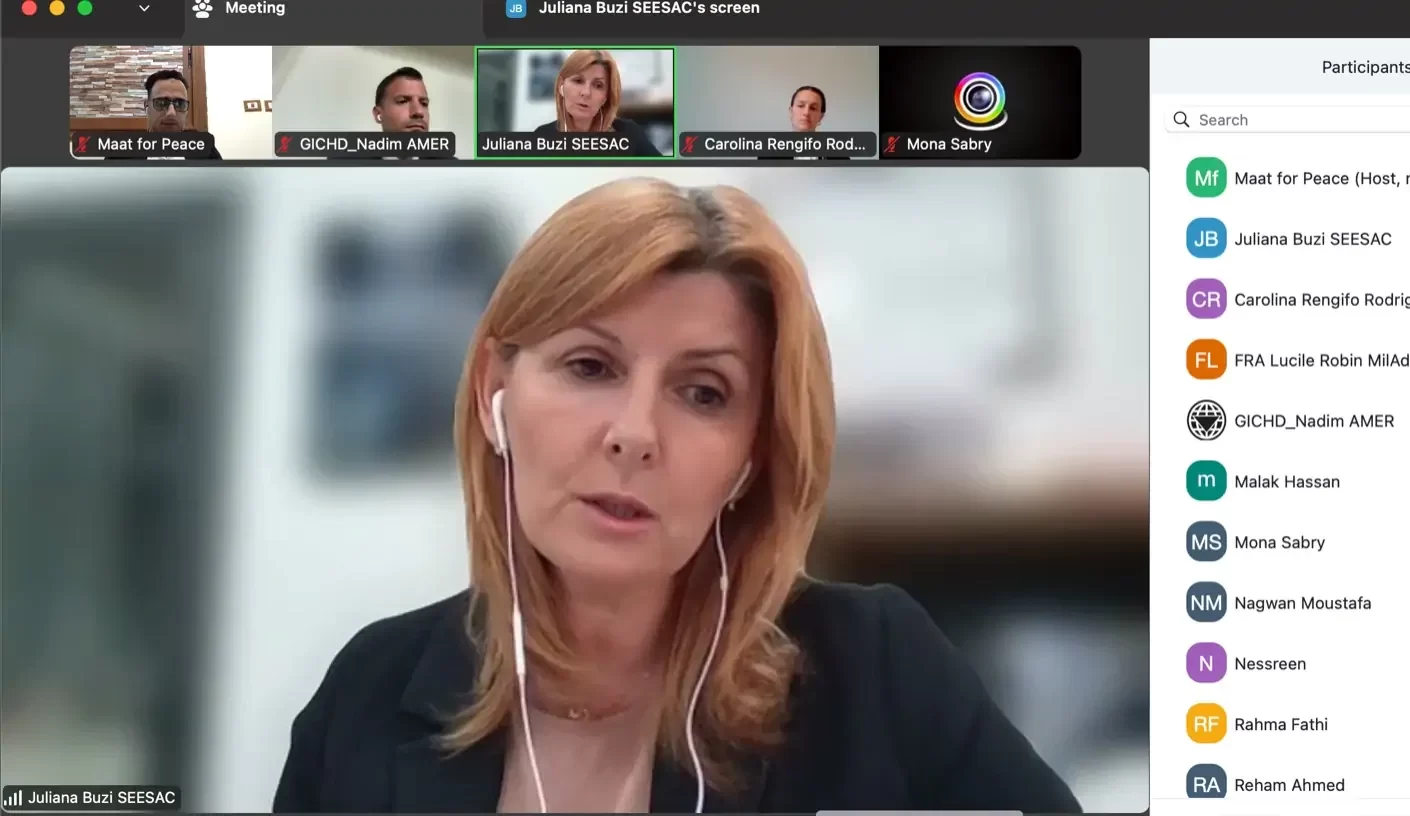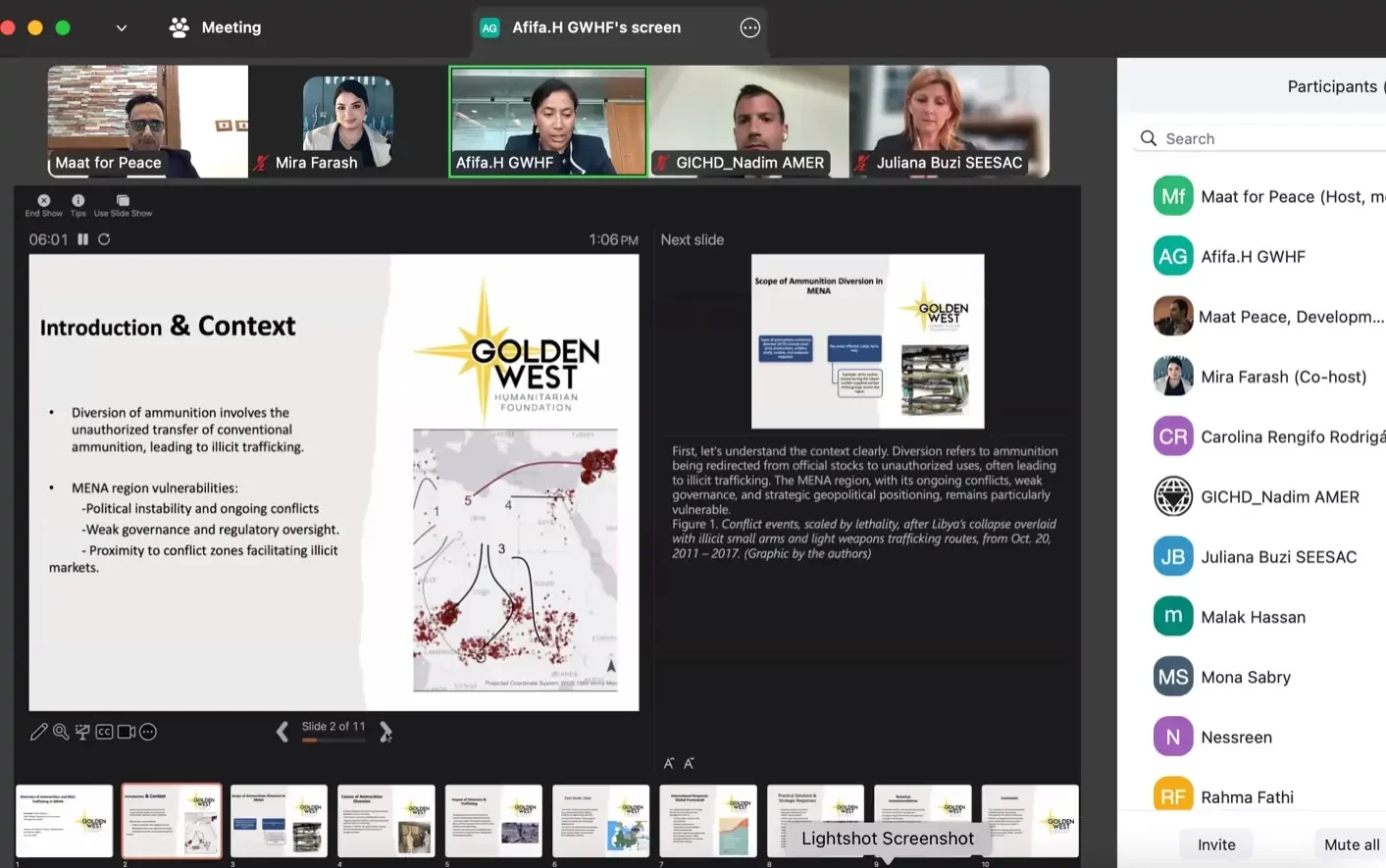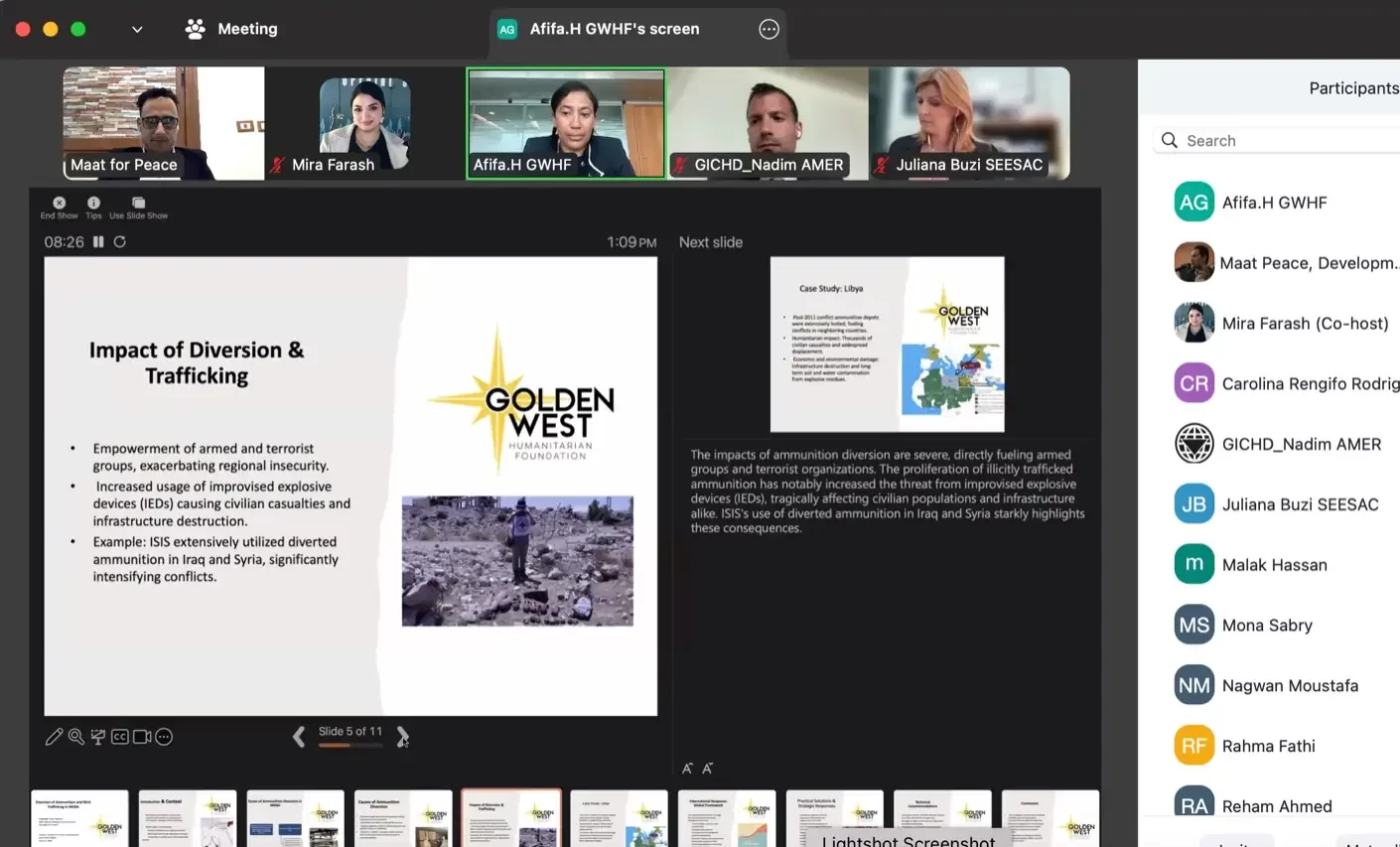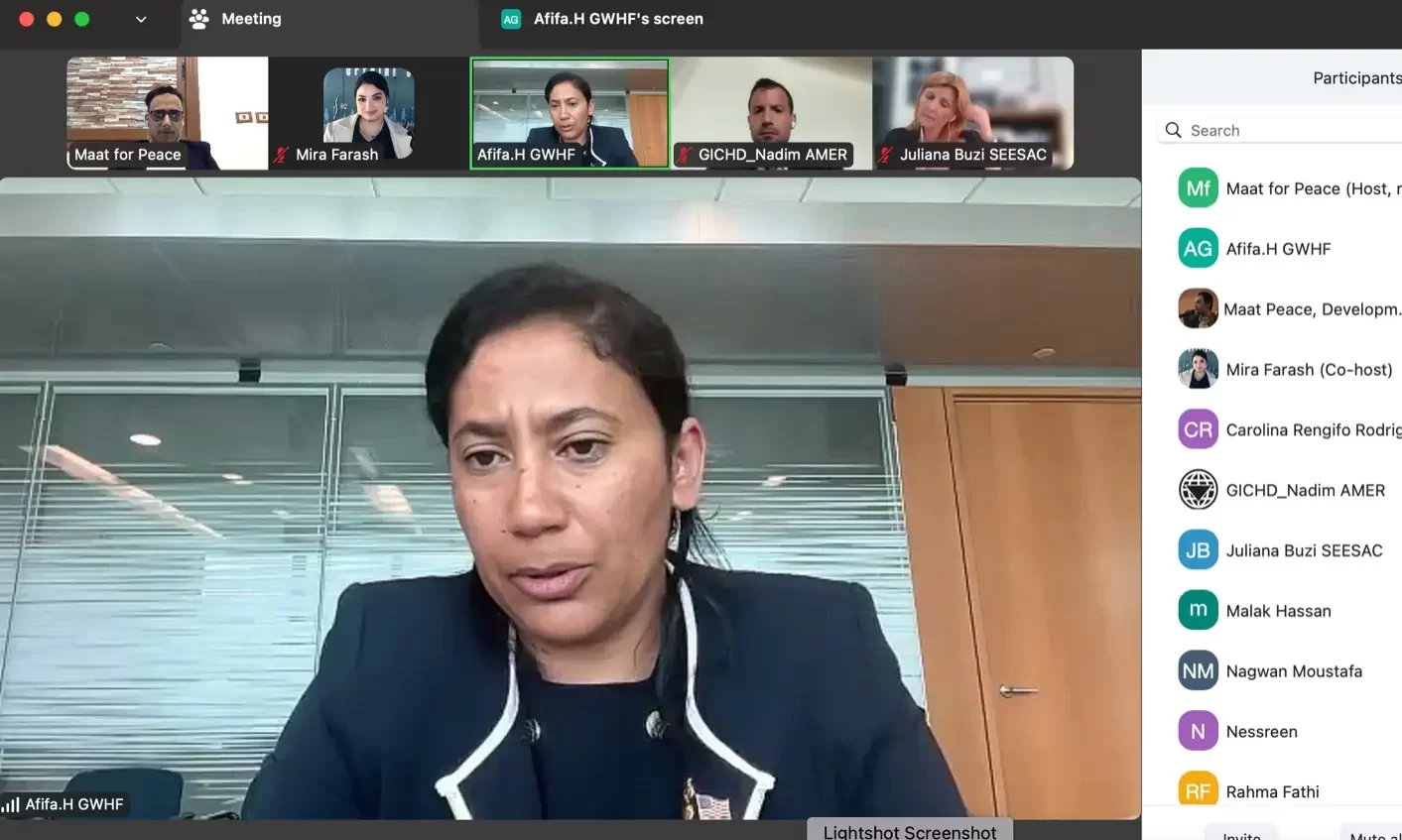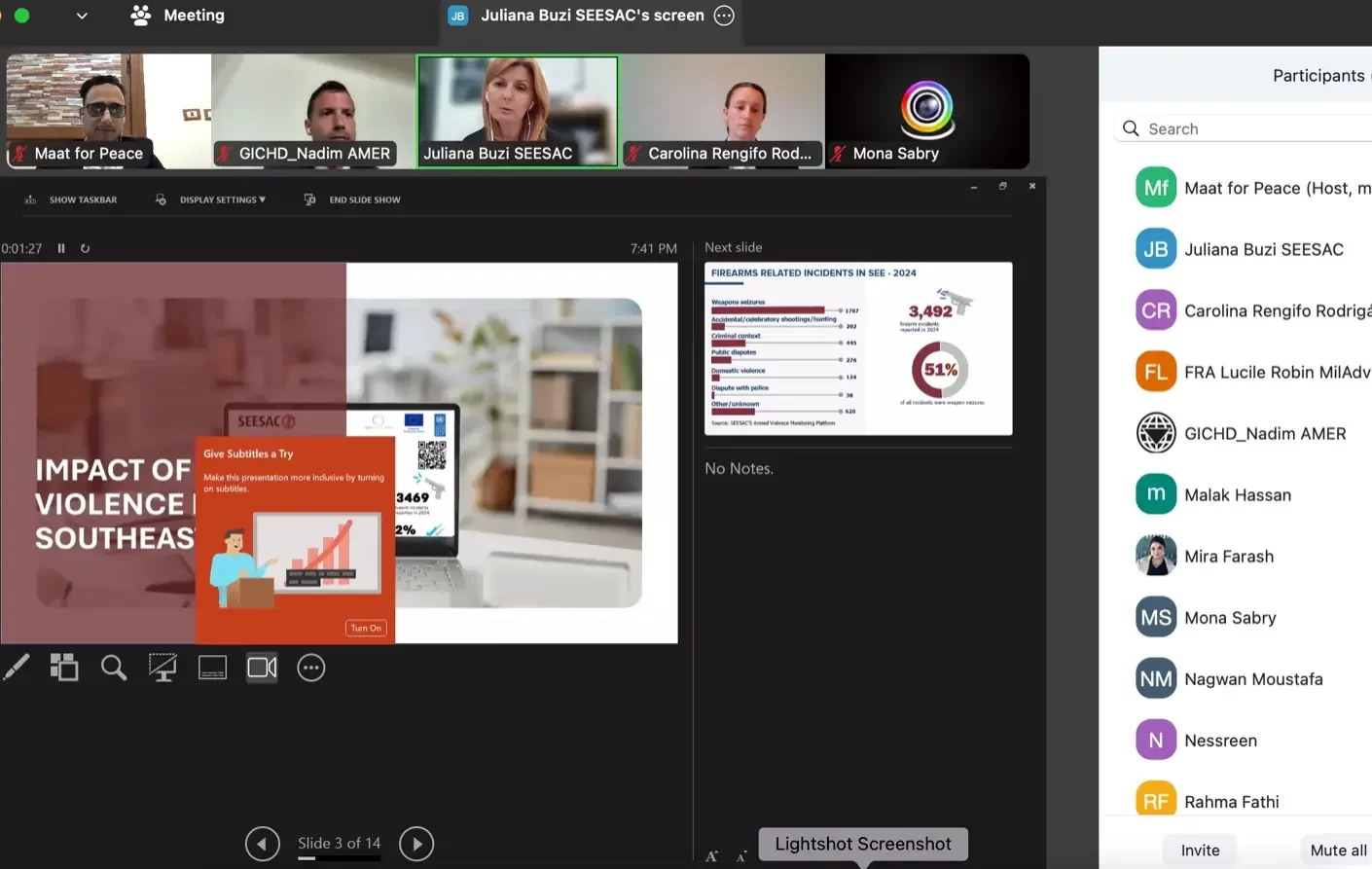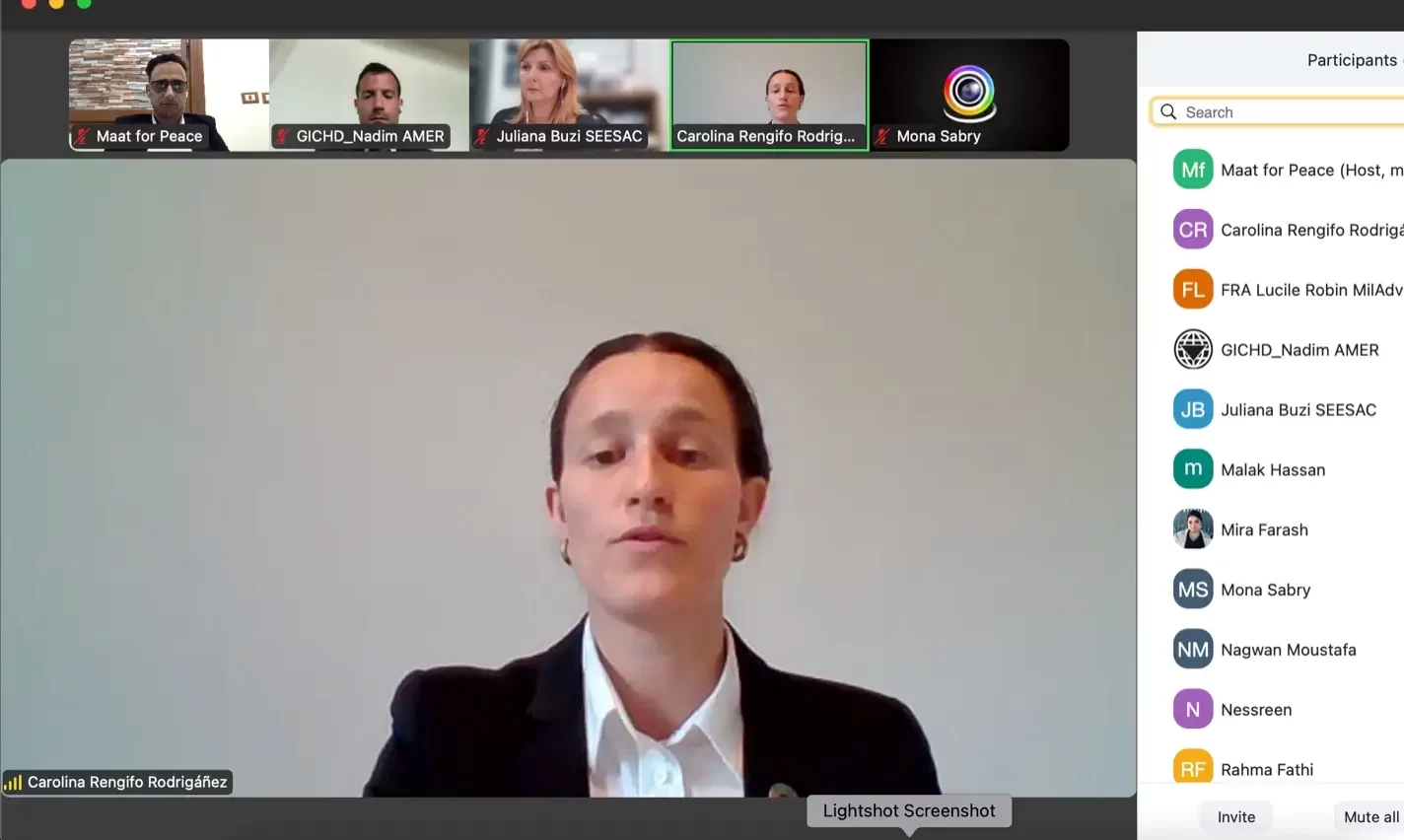As part of its efforts to bolster regional security and reduce the risks associated with weapons and munitions, Maat for Peace, Development, and Human Rights organized a high-level virtual discussion on the management of conventional munitions in the Middle East and North Africa on Monday, June 23, 2025. This event coincided with UN preparatory meeting on the global framework for the life-cycle management of conventional munitions held in New York.
The discussion aimed to highlight the growing challenges posed by UNsafe storage of munitions and the increase in illicit trade, particularly amid prolonged conflicts in the region. Regional and international experts from UN organizations and specialized centers participated in the discussion, focusing on ways to improve national policies and enhance regional cooperation to address this issue.
In his speech, Mohamed Mokhtar, Director of International Humanitarian Law Unit at Maat, warned of the escalating threat posed by the diversion of munitions to armed and terrorist groups. He noted the use of these munitions in the manufacture of explosive devices, which contribute to the prolongation of conflicts, especially in Libya, Syria, and Iraq. Mokhtar added that the lack of sufficient controls fuels black markets that threaten to trigger broader security explosions.
Afifa Al-Habashi, a technical expert from Golden West, emphasized that the spread of unregulated munitions poses a direct threat to civilians and infrastructure. She called for the strict implementation of UN global framework, including securing storage facilities, enacting robust legislation, and expanding cross-border cooperation.
Nadim Amer, an advisor at Geneva International Centre for Humanitarian Demining (GICHD), presented self-assessment tools that support countries' capabilities in munitions management, particularly a munitions stockpile management system, which is a promising experimental tool for enhancing transparency, assessing risks, and preventing accidental explosions.
In discussing the relationship between the non-binding global framework and the binding international humanitarian law, Carolina Ringevo, a legal expert and human rights activist, explained that UN's guiding principles enhance the implementation of states' obligations under international humanitarian law, especially regarding the prevention of illicit transfers, tracking, and accountability. She provided case studies from Libya, Syria, and Iraq to illustrate the positive impacts of applying this framework on civilian protection.
Juliana Bozi, a regional cooperation specialist at Southeast and Eastern Europe Information Exchange Center, concluded the discussion by presenting the experience of Western Balkan countries in combating small arms and light weapons. She urged the Middle East and North Africa to draw lessons from this experience, noting that regional cooperation is essential for harmonizing legal frameworks and enhancing law enforcement effectiveness.
Maat emphasizes that addressing the threats arising from the mismanagement of conventional munitions requires a shared international and regional commitment. Proper management of munitions is not just a technical matter but a humanitarian obligation to protect lives and support peace processes. The foundation calls on countries and stakeholders to adopt the global framework as a comprehensive reference and to expand technical and operational cooperation mechanisms to ensure a safer and more stable future for the region.
shortlink: https://maatpeace.org/en/?p=44982


